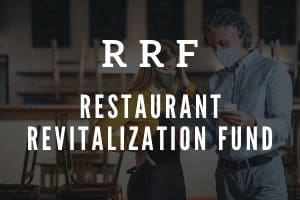In recent years, there have been significant changes to estate tax laws that alter the traditional notions around estate planning. In fact, Congress has created a permanent estate and gift tax exemption, while also allowing for the transferability of a spouse’s unused federal estate tax exemption. This transferability has changed the minimum threshold for using bypass trusts. Before each individual was only allowed an exemption for their own estate. Now the surviving spouse is entitled to the unused portion of the deceased spouse’s exemption. (Note that a surviving spouse should file a return upon the death of the deceased spouse even though no tax is due). This legislation has reduced the need for a bypass trusts since many Americans can now transfer their entire estate via the generous estate and gift tax exemption, which is currently nearly $5.5 million or now due to transferability close to $11 million per married couple in 2017. This was done through the passage of 2 different acts:
TRA: Congress passed the Tax Relief, Unemployment Insurance Reauthorization, and Job Creation Act (“TRA”) created the transferability of a deceased spouse’s unused estate tax exemption amount. Upon the death of a spouse, the executor of the spouse’s estate can file an estate tax return and choose to allow the surviving spouse to essentially inherit any unused federal estate tax exemption of the deceased spouse. The Treasury Regulations refer to the exclusion amount as the “deceased spousal unused exclusion amount,” or the “DSUE amount.”The surviving spouse can use the DSUE amount for estate tax purposes at the surviving spouse’s death or for gifts by the spouse.
ATRA: Congress altered the landscape again in 2012 by passing the American Taxpayer Relief
Act of 2012 (“ATRA”) on January 2, 2013. ATRA made the 2010 changes to the estate, gift, and
generation-skipping- transfer (“GST”) tax exemptions permanent. Thus, the estate, gift, and GST tax exemption is $5,000,000, adjusted annually for inflation. Applying the inflation adjustment for 2017, the exemption is $5,490,000.
In the past, the estate, gift, and GST tax exemption was not as generous and estate planners resorted to methods that funneled money outside of the estate to obtain favorable tax relief. As a result, trusts have been utilized in novel ways over the years to avoid estate taxes. However, the creation of such a large permanent exemption, combined with the transferability of estate tax exemptions upon death has led to some estate planners to conclude that there is a reduced need for creative techniques such as trusts.
However, several situations still exist where a bypass trust is still the best option. The situations usually involve a trade off because a trust setup does not fall within the estate and gift tax exemption, and may thus be subject to additional taxation. Situations, where a trust may still make sense, include:
- Care for loved ones. Caring for minor children until they reach the age of 18, caring for adult children, who may not be able to care for themselves due to illness or disability, and caring for elderly parents or spouses, who may need full-time caretakers. Trusts can be set up to ensure that your loved ones, who are unable to take care of themselves are not taken advantage of and have access to the funds they need. The most popular type of trusts for this purpose are HEMS Trusts. Trusts set up for the Health Education Maintenance and Support of the beneficiaries. If Trustees fail to provide property for the beneficiaries the beneficiary may sue to have them replaced and seek damages. This can also be used to make sure the new caretakers do not overspend frivolously on matters that do not benefit the beneficiary.
- Protection from Creditors. Where assets need to be protected from creditors, where the grantor wants to retain control over the assets, and where the assets need to be distributed to those in a lower tax bracket. Trusts can be set up so that creditors cannot reach the assets of the trust. Specifically, assets in a trust are protected from creditors if the trust has a valid “spendthrift” clause. It is worth noting that a “spendthrift” clause will not provide absolute protection, but will protect the assets from most creditors who seek to reach the assets. On the other hand, an outright bequest is subject to attachment by creditors, unless the asset is exempt from attachment under state law. Thus, the favorable tax treatment of an outright bequest may be outweighed by the ability of creditors to attach to the assets being transferred. Grantors who are facing a lawsuit and possible adverse judgment or have large, unsecured debts may be best served by creating a trust to protect assets from creditors.
- Control of Assets. Where the grantor wants to retain control over the assets, and where the assets need to be distributed to those in a lower tax bracket. The creation of a trust permits the grantor greater control indicating how the resources will be used. For example, the grantor can name the trustee (e.g., a surviving spouse, or someone else) and the grantor can restrict how much the trustee can alter the estate plan. In a normal bequest or transfer, the recipient will have control over the assets, and the grantor loses control over how the resources are utilized.
- Income Shifting. Where the assets need to be distributed to those in a lower tax bracket. In some instances, income from a trust can be allocated to beneficiaries who are in lower income tax brackets than the surviving spouse or the trust. Distributing income in this manner results in favorable tax treatment. A normal bequest or transfer cannot be strategically distributed to beneficiaries in lower tax brackets.
- Protect Governmental Benefits. A trust can be constructed to ensure that a surviving spouse retains (or gains) eligibility for needs-based government benefits. A normal bequest to the surviving spouse may increase the spouse’s wealth to the point that the spouse is ineligible for the assistance program.
- Getting around the Gift Tax. A surviving spouse can make gifts of his or her assets to children or other family members. However, the spouse needs to realize that the gifts use up the spouse’s gift and estate tax exemption. A bypass trust can be established so that the surviving spouse avoids exceeding the gift tax annual exclusion amount. Gifts distributed by the trust would not be treated as gifts by the surviving spouse, thus enabling the spouse to distribute trust assets as gifts without worrying about exceeding the gift tax annual exclusion. The situations above demonstrate that the nearly $5.5 million estate and gift tax exemption has not made trusts completely irrelevant. Situations will arise where the creation of a trust is preferable to a normal bequest. However, the best solution varies widely from family to family and it is best to schedule a consultation to receive personalized advice. In an area with such great financial consequence, it is important to coordinate with attorneys and tax professionals to achieve the optimal estate plan.
Of course, even with the very generous exemption and the new allowance for transferring amongst married couples, there will be some estates that will still be large enough where traditional bypass trusts make sense. If you are wondering whether setting up a trust is right for you please reach out to us to set up a consultation. At LaSusa & Deb, we understand that protecting your legacy is important and should be handled with integrity and care.





